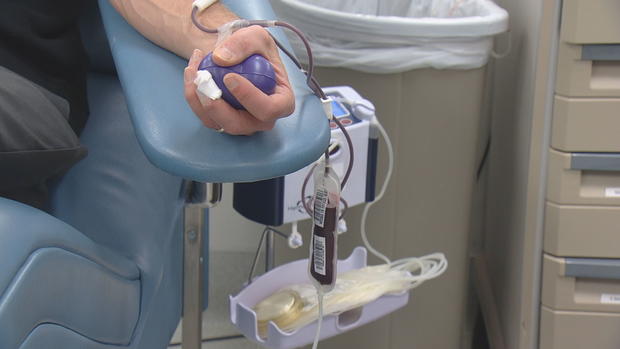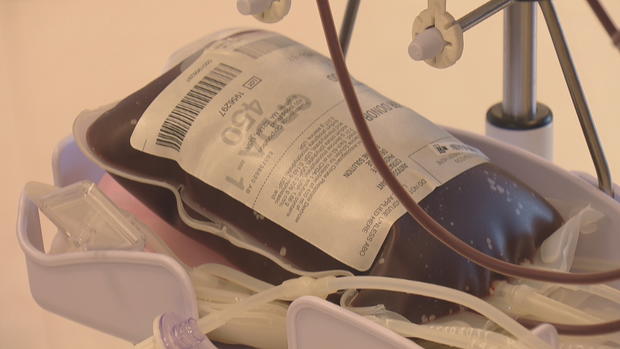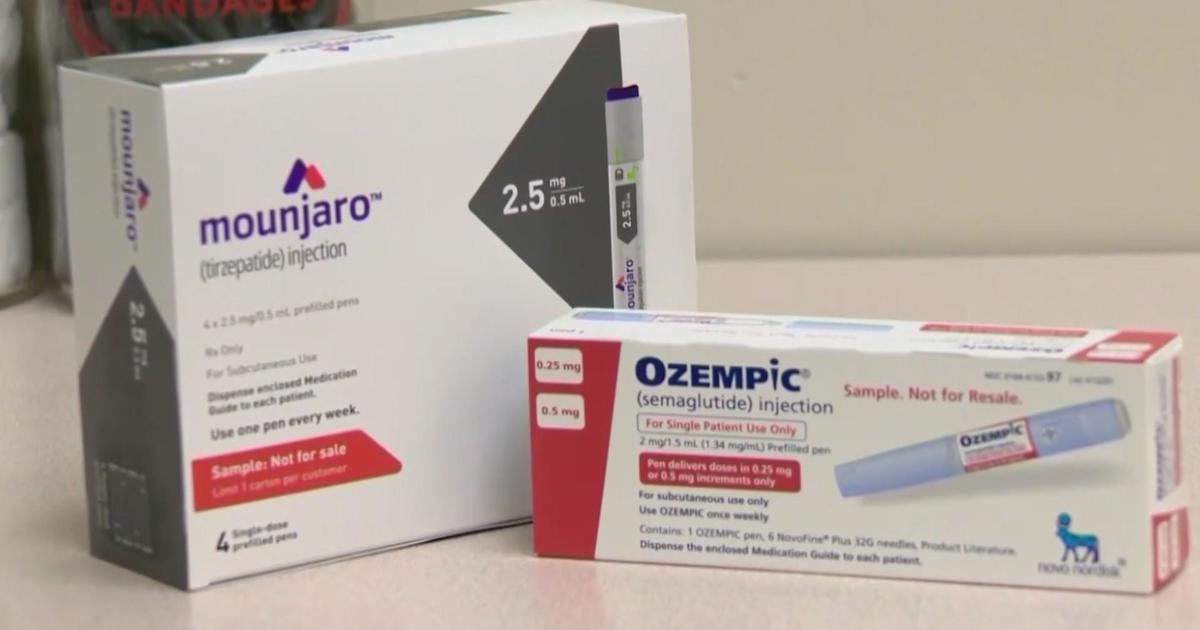Blood Shortage Has Sen. Michael Bennet, 21 Other Senators Urging FDA To Lift Restrictions On Who Can Donate Blood
DENVER (CBS4)- An unprecedented blood shortage has Senator Michael Bennet, a Democrat representing Colorado, and 21 other lawmakers urging the FDA to lift restrictions on who can donate blood.
Blood supply is so low, it has the Red Cross declaring an emergency blood crisis for the first time.
Despite the extreme need, a significant number of people are not allowed to donate. Gay and bisexual men are still not allowed to give blood unless they meet certain requirements of either monogamy or celibacy.
It's a restriction that was put in place at the start of the AIDS epidemic in the 1980s.
Here is the letter:
Dear Secretary Becerra and Acting Commissioner Woodcock,
We write to express our alarm at the nationwide shortage of blood and blood products, which has placed patient care and safety at risk. For the first time, the nation's leading blood donation organizations, including the Red Cross, have declared a national blood supply crisis due to the continued impact of the COVID-19 pandemic. We urge the Food and Drug Administration (FDA) to quickly act on the best available science and update its outdated and discriminatory blood donor deferral policies for men who have sex with men (MSM), a long overdue step that would dramatically increase the eligible donor base.
It is critical that all patients have access to the health care services they need during this pandemic, and for many, the availability of blood and blood products is a necessary component of care. Unfortunately, a significant drop in the number of donations during the COVID-19 pandemic has resulted in a serious shortage of available blood. The Red Cross, America's Blood Centers, and AABB, formerly the American Association of Blood Banks, have declared a nationwide blood supply crisis for the first time, as the nation experiences its worst blood shortfall in over a decade.
In recent weeks, hospitals have had less than a single day's supply of critical blood products, and these organizations have had to limit
distribution to health facilities in need. In fact, the Red Cross has reported that as much as one-quarter of
hospital blood needs are not currently being met.
While no single solution can fully solve these challenges, the FDA has the ability to take a simple and science-based step to dramatically increase the donor base and help address this crisis. In fact, the agency responded to our previous correspondence and took an encouraging step in the right direction during the early days of the pandemic, shortening the deferral period for MSM from 12 months down to three
months in March of 2020.
However, any policy that continues to categorically single out the LGBTQ+ community is discriminatory and wrong. Given advances in blood screening and safety technology, a time-based policy for gay and bisexual men is not scientifically sound, continues to effectively exclude an entire group of people, and does not meet the urgent demands of the moment. And further, with increased uptake of Pre-Exposure Prophylaxis (PrEP), which significantly reduces the likelihood that an HIV-negative individual will acquire HIV, many more gay and bisexual men are aware of their HIV status and are taking steps to
eliminate their personal risk. Instead of the current categorical deferral guidelines, we must adopt evidence-based policies focused on assessment of an individual's risk, not inaccurate and antiquated stereotypes.
All over the world, other countries have led on this issue by scrapping their discriminatory blood donation policies. In October of last year, Israel removed all restrictions on MSM blood donation.3 And just last month, Canada's blood regulatory agency proposed removing all screening questions focused on gender and sexuality.
The tide is turning, and the data support this change. In light of the nation's urgent blood supply crisis and to ensure that Americans have access to life-saving blood transfusions during the pandemic, we urge you to swiftly update your current blood donor deferral policies in favor of ones that are grounded in science, based on individualized risk factors, and allow all potentially eligible donors to do so free of stigma. We also request a briefing in the next 30 days on the agency's plan to update its MSM blood donation policies.
Thank you for your attention to this important issue.





